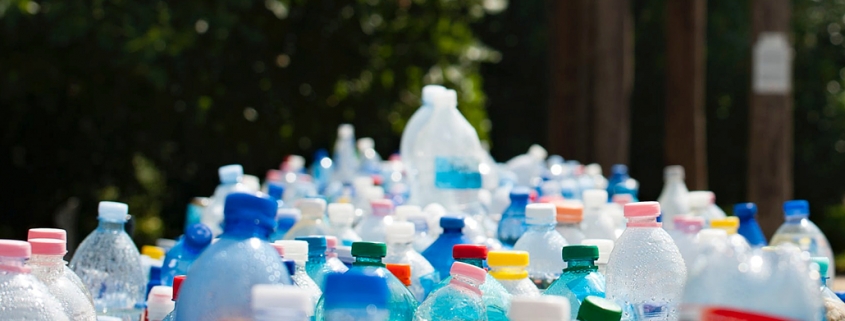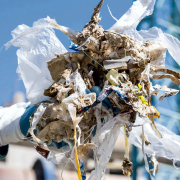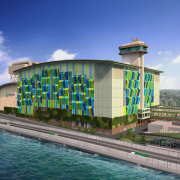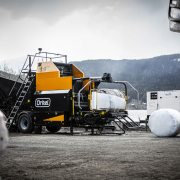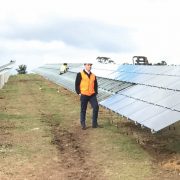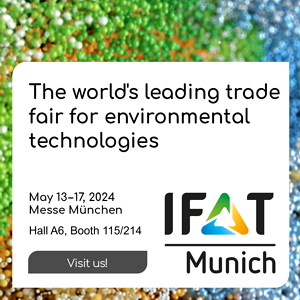How the Caribbean is Tackling the Plastic Crisis
The disposal of rubbish in and around the Caribbean islands has been a cause for concern for some time now. With land at a premium, landfills are not a viable solution for managing waste, either from an ecological or financial perspective. As images emerged of a huge plastic mass floating off of the Honduran island of Roatan in 2017, attention turned to the ways in which the Caribbean islands were managing the issue of waste.
With reports of Trinidad generating the most garbage in the world per capita, and end of life electronic waste set to increase from 6 to 6.8 kilograms per capita in the Caribbean before 2025, it is essential that the islands take steps to minimize the impact of plastic on the environment. One of the smallest islands, Aruba, has launched head first into tackling the problem, but are other Caribbean countries also doing their bit?
Curaçao
One of the biggest issues facing many Caribbean islands is the disposal of waste. With limited land for landfill, recycling is the only way to limit the impact of waste on the surrounding areas. With just 444 square kilometers, the island of Curaçao needed to implement a strategy to deal with the waste issue to prevent nature reserves from being used as landfill. Previously, the lack of waste management led to 95 % of the country’s rubbish ending up in a landfill or in the streets. To deal with this, recycling stations have been placed around the island to collect and separate the waste, particularly from hotels and catering establishments. Guests are educated on the need to keep a litter-free environment and a machine to grind plastic bottle caps has been installed to make transporting the waste easier.
Aruba
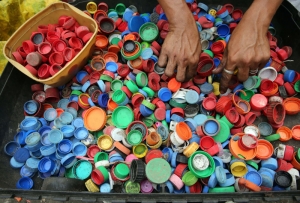
Recycling policies are changing the way the Caribbean deals with plastic waste (Photo: Krizjohn Rosales/pexels.com)
In 2009, Aruba was awash with litter and garbage, greeting passengers as they arrived from the local landfill. With nowhere left to dump the burgeoning waste generated by its 105,000 residents and thousands of tourists, Aruba took the plunge and went green. Launching a national campaign, Aruba encouraged residents to change their mindsets about waste and “refuse, reduce, reuse, recycle, and restore” in a bid to eliminate a lot of the waste issue.
The authorities also worked with Wastaway to construct a facility that converts mixed trash into a homogenous and pathogen- and odor-free material that can be used as a carbon-rich, renewable feedstock. The private recycling industry is also booming on the island, with companies recycling everything from printer and cartridges to paper and aluminum.
Bahamas
With the tourism industry accounting for more than 60 % of the country’s gross domestic product, keeping the beaches and national parks clean and free from waste is a number one priority for the Bahamas. Currently, it produces 300,000 tons of garbage every year, which is subsequently dumped into local landfills that are extremely expensive to maintain. Not to mention the fact that these landfills are using valuable land, which is hard to come by on these tiny islands.
In an effort to manage the issue of waste, the Bahamas Plastic Movement has been set up to recycle as much waste as possible while also educating the tourist industry. With so many places for tourists to stay when they visit, tackling the problem by approaching hotels and resorts is the only way to ensure that policies are also adhered to by visitors.
Barbados
Barbados has been setting an example on how to manage waste for quite some time now. By implementing the “reduce, reuse, recycle, and recover” policy, Bajans have managed to keep their landfill at 300 tons of municipal waste per day since 1994. The authorities quickly grasped the economic value and foreign exchange earning capacity of waste and have been seeking to maximize it ever since. The key to the success of the recycling program on the island is the Sustainable Barbados Recycling Centre which sorts over 1,000 tons of waste each day.
These islands are leading the way in the recycling revolution and reducing the impact of plastic waste on our environment. The island who have not yet taken steps to manage the plastic issue have plenty of great examples to follow as they implement their own policies on waste management.
Author: Alain Haller

